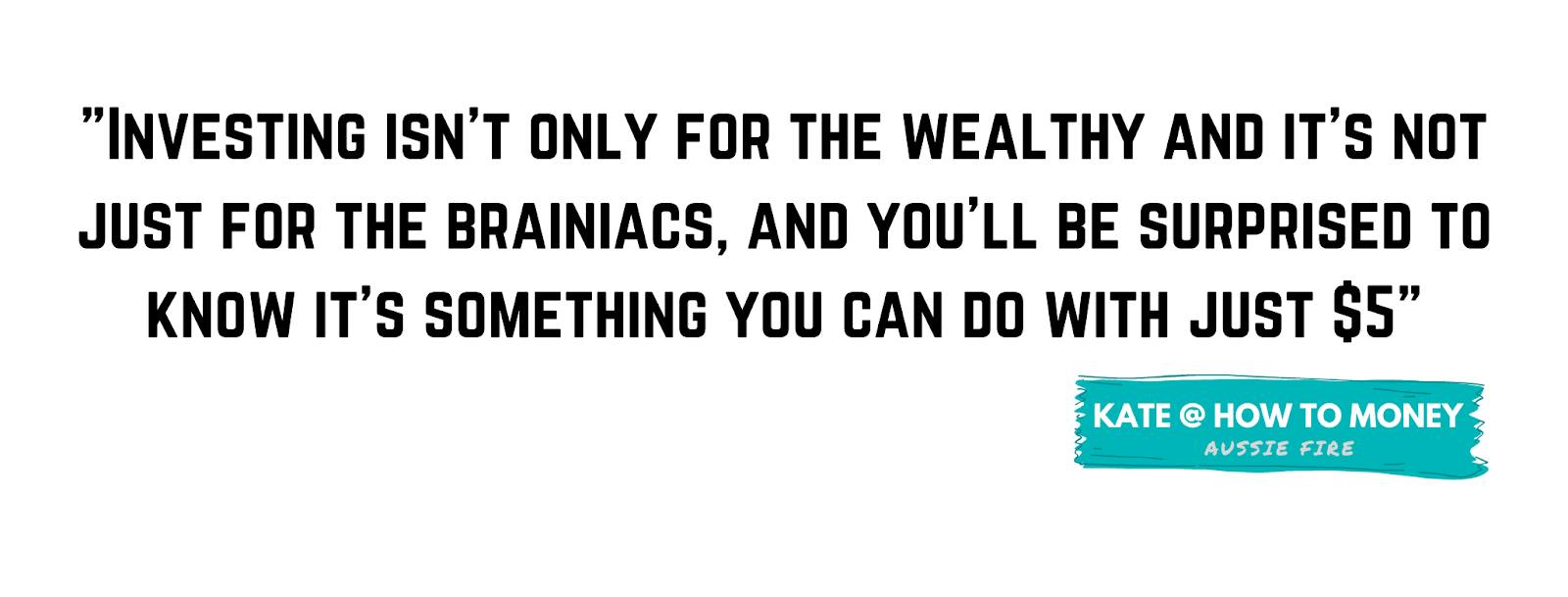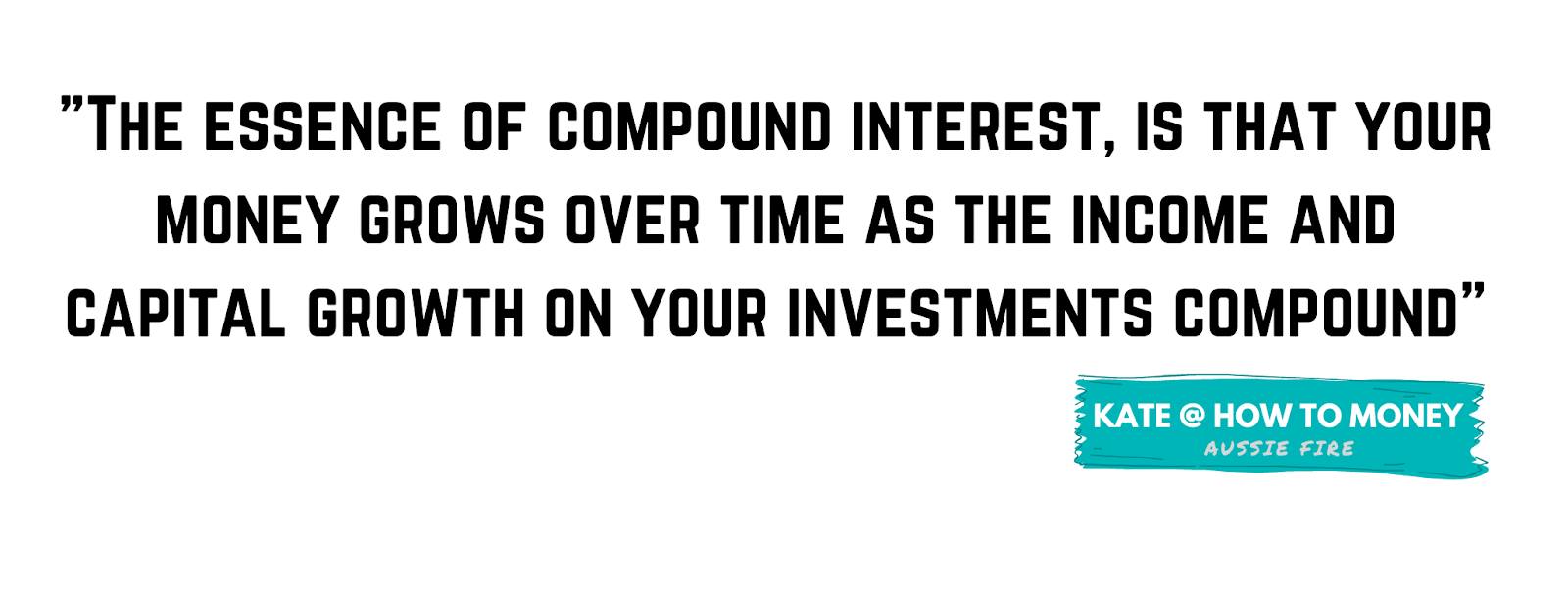Considering that you’re reading this guide, I’m sure you’ve either thought about or already started investing, which is fantastic! Without investing in some capacity, it’s a little tricky to reach financial independence unless you’re lucky enough to win the lottery, so it’s important to get started as early as you can.
In this chapter, I will show you just how important it is to start investing ASAP! I'll guide you through the following sections:
- Making choices
- Getting started early
- The magic of compound interest
- Making mistakes early
- Mistakes to avoid
Making Choices
Over the past seven years of interviewing people about money and investing, one of the biggest takeaways from guests is to start as early as possible. Now they weren’t always talking about investing; it’s also essential to start learning about personal finance and investing in yourself and your career early on.
Sometimes we can get so caught up with everything we think we need to know about investing that we can delay doing anything for years.
But here’s the thing, not doing anything is still a choice. By not making a choice, something or someone will choose for us. The risk of leaving all your cash in your bank account for years is enormous, not only in the opportunity loss but primarily because of the silent killer of wealth, inflation.
No one wakes up overnight knowing exactly what to do with their finances, but you can take the first step. It won’t always feel easy, but just because something is hard doesn’t mean it’s the wrong decision.
Just think: you’re starting a lifelong personal finance journey, where you only need to take one step at a time, but each action you take adds another piece to the puzzle. By recognising that you don’t need to have it all figured out to get started (most of us don’t!), you can choose to start investing at any age. You have the power to take back control over your financial path, but you need to take that first step.

Getting Started Early
Do you remember playing Monopoly with your family growing up? It’s one of those games that singlehandedly managed to wind up everyone’s emotions, probably because of all the parallels to our own life.
Winning a game of Monopoly requires patience, skill, negotiation, cooperation, hard work and a handful of luck. You feel the elation of winning, the disappointment of being broke and taking out a loan, alongside the frustration of continuously paying rent and tax to someone else, all in one simple board game. Sometimes you move one step forward only to take two steps back, and it feels like you’re running in circles.
There are many similarities between playing Monopoly and this game we call life. There are winners, losers and many of us who just get by. Some people grow their wealth through chance, others through strategy, and many just get there by making sound decisions over a long period of time. There are proven paths that you can follow and rules that make the entire game that little bit more straightforward. The great thing is that with the availability of information nowadays, you can work out the game's rules for yourself and build wealth through investing.
So what’s the trick?
Unfortunately, the boring way to build wealth takes time and patience and isn’t glamorous. It’s about making decisions every day that will put the you of tomorrow in a better position. This is one of the reasons why many people don’t take this path.
Another reason why we don’t start is that we think we need a lot of money to invest. Thankfully that’s just not true anymore. Despite what you may think, investing is accessible to everyone in Australia, and you can do it for just $5 with tools like Pearler Micro. You also don’t need a complex strategy to get started. For most people, investing isn’t about the charts, numbers and inside scoops; it’s about finding a simple, cost-effective and diversified solution you can put in place and monitor, making the occasional adjustments.
Your first investment doesn’t need to be the next big stock your flatmate told you about or some high-risk leveraged product. It’s important to throw showing off out the window as an investor. No one will care down the track that you found something more exciting than them to invest in, and your brokerage account will thank you. That’s not to say that once you’re confident with the basics, you don’t step up your game and start incorporating different products or researching individual companies.

Owen Rask and I always tell listeners of The Australian Finance Podcast that investing is about little bits, lots of times. And it works!
Having a small starting balance and committing to a regular contribution plan is a much more realistic way to invest, rather than waiting until you have the perfect starting balance.
I know how nervous you can feel when getting started with investing; you’re putting your hard-earned dollars into companies, properties, bonds and other investment products that have big warning labels on the side.
‘Past performance does not equal future performance’, ‘high risk’, ‘general information only’, ‘returns not guaranteed’, and many more.
However, we can look historically at how different asset classes globally have performed and see just how much of a difference investing just $10,000 can have over someone’s lifetime.
Vanguard has a fantastic tool to explore global asset classes over the last five decades - which I’d encourage you to explore.
Let’s look at the numbers behind everything we’ve just discussed.
The Magic of Compound Interest
Many people in the finance industry will tell you there’s nothing free when it comes to investing except perhaps compound interest.
If you’ve ever wondered how people turn $1,000 into enough to retire, the secret weapon behind this is compound interest.
Okay, so it’s not as magical as Rumpelstiltskin turning straw into gold, but I’d say it’s pretty close. Long story short: compound interest means your money grows over time as the income and capital growth on your investments compound.
Just visualise a snowball. The longer you let it roll down the hill and the more snow you feed it, the bigger it gets. Investopedia has a great breakdown on compound interest you can check out.

If you start investing just $250 per month (assuming a 7% annual interest rate) and continue doing so over the next 50 years, your little snowball will grow into a life-changing amount. So, let’s break down some of the numbers.
| Amount Invested (monthly) | 25 years | 50 years |
|---|---|---|
| $250 | $189,747 | $1,219,587 |
| $500 | $379,494 | $2,439,174 |
| $1000 | $758,988 | $4,878,347 |
If you want to hop on the fast train to financial independence then you’re going to need to invest more money regularly, as you’ll have a much shorter timeframe to let compound interest work its magic. Let’s look at some more calculations (still assuming a 7% annual interest rate).
| Amount Invested (monthly) | 10 years | 15 years |
|---|---|---|
| $4,000 | $663,190 | $1,206,193 |
| $5,000 | $828,987 | $1,507,741 |
| $6,000 | $994,784 | $1,809,290 |
The fast route is certainly possible for some people, but it won’t be for everyone. However, it’s important to ensure that your FI goals don’t stop you from living a meaningful and fulfilling life.
If you’re currently in a stage of life where you’re making a significant income, selling a business or inheriting money, take advantage of this by putting a large portion towards your FI goal. Otherwise, focus on a more sustainable route towards FI that you can stick to over the next few decades while compounding works magic on your investments.
Head over to the ASIC MoneySmart Compound Interest calculator to try these calculations yourself. Another place to plug in the numbers and see what might be possible for your own situation is Pearler's Financial Independence Calculator.
Automating your finances is the next thing to consider to ensure that you maximise your ability to compound your returns. Ramit Sethi is one of my favourite personal finance writers who talks a lot about the importance of automating your finances.
“By setting up a bulletproof personal finance system, you can start to dominate your finances by having your system passively do the right things for you. It will help you automatically manage your money, guilt-free, for years to come.”
I also created a free course for Rask Education, which is all about practical ways to automate your finances!
Work out your plan and spend some time implementing it. You’ll be thanking yourself in years to come for making your financial life immensely less stressful.
Making Mistakes Early
Of course, it’s better to make mistakes early on in your life, but we don’t always have the luxury of starting our investing journey straight away. The most important thing to remember is that you need to make mistakes yourself.
You might choose to use a financial adviser and accountant to help you with everything, but you must ensure you’re fully involved in that process and taking ownership of your financial future.
No one is ever going to care about your finances and your future as much as you will.
You can pay people incentivised by money, reputation and hopefully a desire to help you, but they will never have the same passion as you do for building a life that you love.
If you’re working towards your financial independence goal over the next few decades, the most effective approach to start with now is investing small amounts, lots of times.
Don’t focus on investing everything at once; just work out a plan and start investing on a regular basis.
At the beginning of your journey, when you’re just getting started with saving and investing, it can feel like a lifetime before you reach your first $100k and like you’ll never get to your FIRE number. However, that’s exactly why it’s so important to build an investment plan that’s sustainable for your life and ensures that you can maximise enjoyment over the coming decades, while also achieving your goals.
If your investing goals are making you miserable, they must be re-evaluated and adjusted until they align better with your life. There’s absolutely no point working your butt off to reach financial independence and not enjoying your life.
Mistakes to Avoid
Although this is slightly less related to everything I spoke about above, one of the reasons many people don’t start investing is because they’re scared of making a mistake. So let’s talk about some common mistakes investors make at any age.
When you enter the world of investing for the very first time, everything looks like a potential opportunity, and everyone online will be telling you something different. Look in one direction, you'll see someone promoting CFD trading, another way, they’ll be spruiking stocks and turn around to find another IPO for the next big thing! I get it, I do, everyone's got something to sell or a point to get across, and maybe it did work for them, but investing can feel confusing enough without all these distractions.
But that’s what they are, distractions, and you don’t want to waste years of opportunity and your hard-earned money chasing the next big thing. Investing can be quite simple if you can look past all the distractions and get rich quick schemes.
Remember, all that glitters is not gold - sadly, I didn’t come up with that one myself!
To save you some time, here are ten ways you can lose money when investing. This is not an exhaustive list, but it’s a few things to be mindful of when navigating the minefield that is Google
- The Great Aussie BBQ Tip
- Online Forums & Stock Pumpers
- Not questioning a free lunch/seminar/portfolio review
- Trends (eg. lithium, drones, marijuana, crypto, silver)
- IPOs & Crowdfunding
- Your investments are in someone else’s name
- The returns promised are out of this world
- You send your money overseas to evade tax
- Deciding you’re the next big day trader
- Having no idea what you just invested in
Whether it’s a stock, managed fund or property, do your research before investing. Ensure you understand the costs, risks, and management and read the appropriate documents before committing your hard-earned cash. Check out this ASIC MoneySmart Guide for more information on making informed investment decisions.
So, what are you waiting for? Investing is now accessible to anyone with an internet connection and a bank account. Continue making your way through the rest of this fantastic resource and remember to start investing ASAP.
Kate Campbell Bio
Kate Campbell is a financial educator who loves talking to anyone who will listen about one of our most taboo (but very important) topics: money. You can find her doing everything from writing articles on personal finance, creating free online courses, running the Rask online community and trying her hand at social media. Pretty much anything to do with personal finance, and Kate’s involved.
Kate has also created the Rask FIRE, Career and Automation courses.
Previously, Kate worked at Citigroup, InvestSMART and Timelio, and sharpened her teeth in the industry with multiple financial operations and investment administration roles. She holds a Bachelor of Business Management from the University of Canberra.
Kate also hosts one of Australia’s top-ranking finance podcasts, The Australian Finance Podcast, which attracts 70,000 listeners each month.
Kate’s formal qualifications:
- Bachelor of Business Management (University of Canberra)
- General Advice, Managed Funds, Superannuation & Securities RG146 Qualifications (Kaplan Professional)
NOTE: Aussie FIRE is a free educational resource prepared by Pearler, with permission from the co-authors. At Pearler, we strive to make investing for your long term goals easier and fun, but we only provide general information and/or general advice. We don’t present you any options based on your personal objectives, circumstances, or financial needs. Any advice is of a general nature only. All investments carry risk. Before making any investment decision, please consider if it’s right for you and seek appropriate taxation and legal advice. Please view our Financial Services Guide before deciding to use or invest on Pearler.


